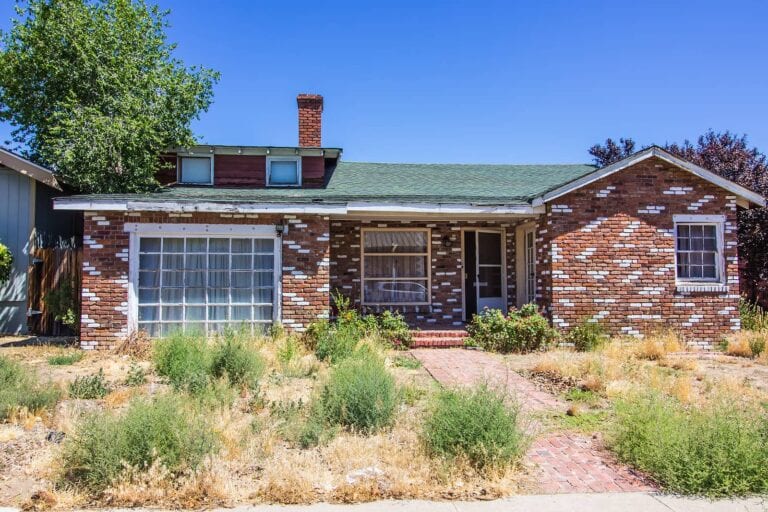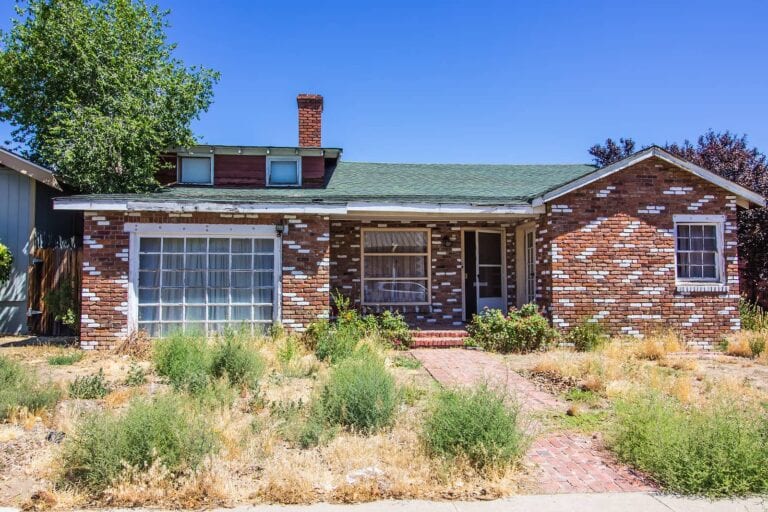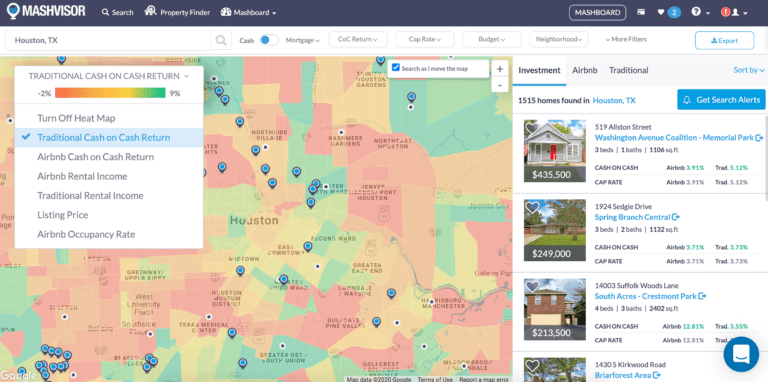Is Buying a Vacant House a Good Investment?
Becoming an Airbnb Host in 2021? Do This & You Won’t Fail
Vacant or abandoned homes are a common phenomenon in many American neighborhoods. A recent report revealed that 1.6 million residential real estate properties were sitting vacant across the US housing market in Q4 2020. This accounts for 1.6% of all homes.
Based on those stats, it’s likely you’ve driven past a vacant house in your city or have at least heard of another real estate investor who swears by this type of investment. But is buying a vacant house a good investment? Let’s find out:
So, What Is a Vacant House?
A vacant house is simply a property that no one lives in anymore. Such vacancies are usually the result of contentious divorces, personal bankruptcies, unexpected deaths, or foreclosure.
What Happens When a House Sits Vacant?
Due to deferred maintenance and neglect, vacant houses are usually characterized by problems such as overgrown yards, broken windows, collapsing roofs, mold, and broken water pipes. Some of this damage is caused by vermin like raccoons, rats, mice, and bugs. Criminals can also vandalize a vacant house and steal anything of value. Quite often, vagrants will be found squatting in abandoned homes.
Related: Abandoned Houses: Should You Invest in One? How?
Is Buying a Vacant House a Good Real Estate Investment?
Buying an unoccupied or abandoned house is something worth considering as a real estate investor. However, you must understand the pros and cons involved before making a decision.
The Benefits of Buying a Vacant House
- Growing inventory – When the coronavirus pandemic struck in 2020, the federal government issued mortgage forbearance under the CARES Act. This protected borrowers that were unable to make monthly mortgage payments from being foreclosed. However, when this forbearance period ends, there is likely to be a sharp spike in foreclosures. With the influx of newly abandoned homes in the market, you will have a wide variety to choose from.
- Affordability – Since most vacant homes are dilapidated, owners are usually willing to sell them at a price way below the market rate. With a low initial investment, you will enhance your chances of making a good return on investment.
- Seller financing – When you buy an abandoned home, you can access non-traditional financing such as seller financing. This can be very useful especially for real estate investors that don’t have a high credit score.
The Risks of Purchasing an Abandoned House
- High cost of renovation – If the home has significant safety or structural issues, you will have to spend a lot of money on the renovation to bring the income property into compliance with the local building code. Unanticipated repairs can especially end up costing you tens of thousands of dollars.
- Time investment – Besides the financial investment, you might also be required to spend a lot of time supervising construction, negotiating with contractors, and dealing with local inspectors. This can be very disruptive for busy real estate investors.
- Limited home inspection – It is always wise to hire a professional home inspector to assess the condition of a vacant house. However, the inspector cannot check the condition of the heating and cooling system, electrical wiring, and plumbing if the electricity, gas, and water have been shut off. You might therefore find lots of unpleasant surprises when you buy the home.
- Costly homeowner’s insurance – If the condition of the home shows a higher risk of future claims, the insurance company will increase your premium.
So, what’s the verdict? Is a vacant house worth the investment? Well, it can be. If you’re aware of the risks and take the proper steps to mitigate them early on, you could end up with a cash flowing property.
How to Find Vacant Houses

There are a few great ways to find a vacant house. Try a mix of these approaches!
The following are some strategies you can use to find a good investment property of this kind:
Drive for Dollars
This is an old-fashioned, yet very effective way of spotting empty homes. Simply drive around the neighborhood and look for signs such as utility shut off notices, boarded up doors and windows, missing gas meter or power meter, broken windows, or a vacant slip in the mailbox. When you see a vacant property, write down the address, and visit the local county assessor’s office to get more vacant house data.
What Is an Escalation Clause in Real Estate? Should You Use One?
Related: A Guide to the Driving for Dollars Real Estate Strategy
Visit Local Banks
As mentioned earlier, homes are often abandoned by owners that were unable to afford the monthly mortgage payments. Banks usually keep lists of foreclosed homes that are available for sale. If you are thinking of buying a property in a specific neighborhood, visit the local banks and find out if they have any impending foreclosure sales.
Work with a Local Real Estate Agent
Real estate agents are usually aware of all the vacant properties in their neighborhoods. An agent can therefore help you find what you are looking for within a shorter time. In addition, an experienced realtor will inform you about things like zoning restrictions, ordinances and covenants, easements, and permits.
Find a top-performing real estate agent now.
Network with Postal Workers
Since postal workers drive around neighborhoods daily, they know which properties belong to an absentee owner. They are also familiar with the homes that have non-deliverable addresses. All you need to do is catch them as they deliver mail and ask for vacant house leads. As an incentive, you could offer them $5 per lead. Very few postal workers will resist such an offer.
Work with Real Estate Attorneys
Real estate attorneys are always handling cases that involve heirs or divorcees that want to sell their homes. They also have access to lists of all the eviction notices in the area. You can reach out to attorneys in your area via email or phone to get leads on off market properties that are likely to fall vacant.
So You Found a Vacant Property. How Can You Easily Find the Owner?
Wondering how to find out who owns a house? Simply visit Mashboard. This tool will instantly provide homeowner data like name, phone number, and email address. Using the address, you can also analyze the property’s profitability potential on Mashvisor.
Get Access to Homeowner Data
Conclusion
Other valuable sources of vacant house leads could be foreclosure inspectors and even the fire department. However, finding abandoned property is one thing, and buying it is another. Therefore, be sure to do your research and learn how to buy a vacant house. If done right, investing in vacant houses can be a very lucrative venture.
Related: The Ultimate Guide to Investing in Vacant Property
Start Your Investment Property Search!
AgentFinancingInsuranceOff Market PropertiesRenovations
15 Cities with the Highest Rents in the US in 2021





Recent Comments